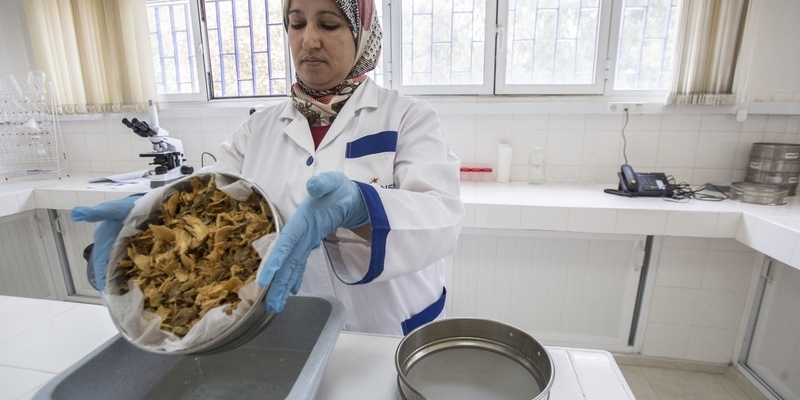Supporting Food Security in the Middle East North and Horn of Africa
Posted on Thu, 07 Jul 2016, 14:50

With the support of the IPPC Secretariat and the Government of the United Kingdom of Great Britain and Northern Ireland, NPPO staff in the Middle East and North Africa (Mena) and Horn of Africa regions are working towards strengthening their food security and biosafety status and adding continued momentum towards the IPPCs theme for 2016 - Plant Health and Food Security.
The geographical positioning of the MENA and Horn of Africa region makes it particularly vulnerable to south to north migratory movements of pathogens and pests of plants. Protracted instability in the region has only exacerbated the vulnerability of these countries to detect and respond to pests of plants in their frontline border areas. With already weak frameworks for the exchange of information between and within countries, a request for action by the regions countries was made to strengthen capabilities of scientists and support staff engaged in tackling their countries food security challenges. The IPPC and the Government of the United Kingdom and Northern Ireland s co-funded a project Strengthening Biosecurity in selected MENA and Horn of Africa States Needs Assessment and Capacity Development has responded to this request and has delivered on its key objectives.
The first phase of the Phytosanitary Capacity Evaluation tool (PCE) has been applied in Tunisia and Morocco, while full PCEs have been applied in Palestine and Lebanon. This management tool helped countries identify strengths and gaps in their existing and/or planned phytosanitary systems. Through this activity, Palestine and Lebanon contributed to their national plant protection action plans. Palestine also developed a project proposal based on national priorities identified during their PCE process. Subsequent phases of this project are being funded by the Government of the Netherlands.
Some 67 NPPO participants across 10 countries in the region participated in the IPPC e-learning course on Pest Risk Analysis in Arabic and attended a week-long special training in Pest Risk Analysis focused on Xylella fastidiosa causing Olive Rapid Decline. The UK project also resulted in the development of a manual for the establishment of plant pest and disease laboratories titled Guide to Delivering Phytosanitary Diagnostic Services and can be found on the Phytosanitary Resource website. The manual is considered a key component towards assisting countries in strengthening their laboratory infrastructure and providing methodologies for the reliable identification of pests and pathogens.
An assessment of Morocco s national pest diagnostic laboratory was conducted and will now serve as a baseline for the development of a methodology to assess diagnostic laboratories in future. The preparation of a guide to assist countries to assess national pest laboratories including pest databases and biological collections will be made available via the IPPC phytosanitary resources website in the near future.
In spite of challenges due to the overall state of flux of security in the region, the project was able to implement the majority of its planned actions, however, further capacity development will be critical towards strengthening phytosanitary programmes in the region in a sustainable manner. The Secretariat encourages IPPC contracting parties to utilize the products of this project and will continue to champion capacity development for IPPC contracting parties to monitor and respond to plant pest risks.

